Filter by
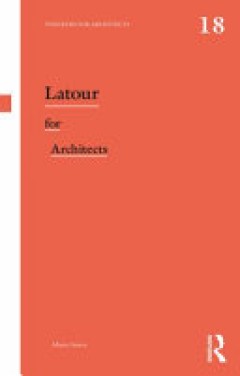
Latour for architects
Bruno Latour is one of the leading figures in Social Sciences today, but his contributions are also widely recognised in the arts. His theories ‘flourished’ in the 1980s in the aftermath of the structuralism wave and generated new concepts and methodologies for the understanding of the social. In the past decade, Latour and his Actor-Network Theory (ANT) have gained popularity among researc…
- Edition
- 1
- ISBN/ISSN
- 9780429328510
- Collation
- xiv + 141 p
- Series Title
- -
- Call Number
- 720.1 YAN l
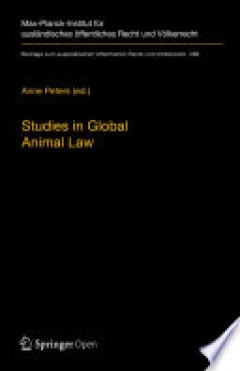
Studies in global animal law
This open access book contains 13 contributions on global animal law, preceded by an introduction which explains key concepts and methods. Global Animal Law refers to the sum of legal rules and principles (both state-made and non-state-made) governing the interaction between humans and other animals, on a domestic, local, regional, and international level. Global animal law is the response to t…
- Edition
- 1
- ISBN/ISSN
- 9783662607565
- Collation
- -
- Series Title
- -
- Call Number
- 346.046954 ANN s
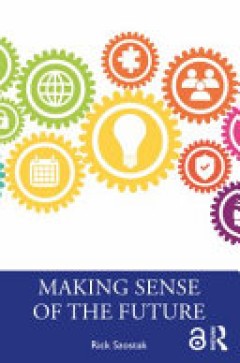
Making sense of the future
Making Sense of the Future integrates the latest thinking in Future Studies with the author’s expertise in world history, economics, interdisciplinary studies, knowledge organization, and political activism. The book takes a systems approach that recognizes the complexity of our world. It begins by suggesting a set of goals for human societies and identifying innovative strategies for achievi…
- Edition
- -
- ISBN/ISSN
- 9781003186854
- Collation
- xiv + 193 p
- Series Title
- -
- Call Number
- 303.49 RIC m
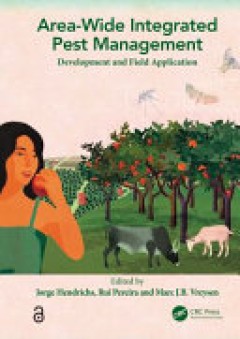
Area-wide integrated pest management : development and field application
Over 98% of sprayed insecticidies and 95% of herbicides reach a destination other their target species, including non-target species, air, water, and soil. The extensive reliance on insecticide use reduce biodiversity, contributes of pollinator decline. destroy habitat, and threatens endangered species. This new textbook attempts to address various fundamental components of AW-IPM, e.g. the imp…
- Edition
- -
- ISBN/ISSN
- 9781003169239
- Collation
- xv + 1020 p
- Series Title
- -
- Call Number
- 632.9 ARE a
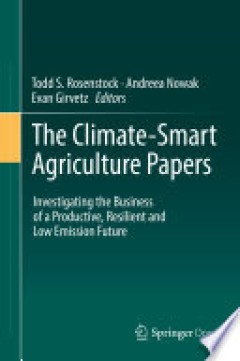
The climate-smart agriculture papers : investigating the business of a produc…
This book is open access under a CC BY 4.0 license. This volume shares new data relating to Climate-Smart Agriculture (CSA), with emphasis on experiences in Eastern and Southern Africa. The book is a collection of research by authors from over 30 institutions, spanning the public and private sectors, with specific knowledge on agricultural development in the region discussed. The material is…
- Edition
- Ed. 1
- ISBN/ISSN
- 9783319927985
- Collation
- X, 321
- Series Title
- -
- Call Number
- 333.7 Ros
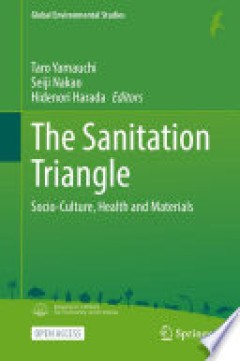
The sanitation triangle : socio-culture, health and materials
This open access book deals with global sanitation, where SDG 6.2 sets a target of enabling access to sanitation services for all, but has not yet been achieved in low- and middle-income countries. The transition from the United Nations MDGs to the SDGs requires more consideration based on the socio-cultural aspects of global sanitation. In other words, equitable sanitation for those in vulnera…
- Edition
- -
- ISBN/ISSN
- 9789811677113
- Collation
- x + 264 p
- Series Title
- -
- Call Number
- 363.72 THE t
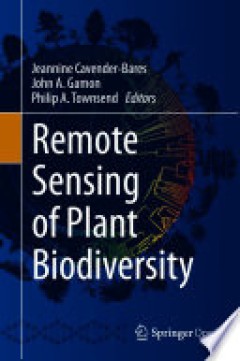
Remote sensing of plant biodiversity
This Open Access volume aims to methodologically improve our understanding of biodiversity by linking disciplines that incorporate remote sensing, and uniting data and perspectives in the fields of biology, landscape ecology, and geography. The book provides a framework for how biodiversity can be detected and evaluated—focusing particularly on plants—using proximal and remotely sensed hype…
- Edition
- -
- ISBN/ISSN
- 9783030331573
- Collation
- xxii + 581 p
- Series Title
- -
- Call Number
- 333.9530285 JEA r
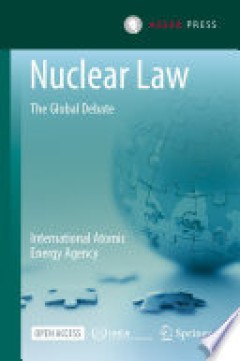
Nuclear law : the global debate
This open access book traces the journey of nuclear law: its origins, how it has developed, where it is now, and where it is headed. As a discipline, this highly specialized body of law makes it possible for us to benefit from the life-saving applications of nuclear science and technology, including diagnosing cancer as well as avoiding and mitigating the effects of climate change. This book se…
- Edition
- -
- ISBN/ISSN
- 9789462654952
- Collation
- viii + 333 p
- Series Title
- -
- Call Number
- 343.0925 NUC n
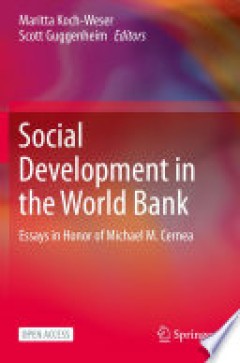
Social development in the world bank : essays in honor of michael m. cernea
This open access book honors the work of Michael Cernea, who was the World Bank’s first professional sociologist, by taking on and extending his arguments for "putting people first.” Cernea led a community of social scientists in formulating and promoting a comprehensive set of innovative and original social policies on development issues, which the World Bank adopted and implemented. This …
- Edition
- -
- ISBN/ISSN
- 9783030574260
- Collation
- XXI, 368 p
- Series Title
- -
- Call Number
- 361.6 MAR s
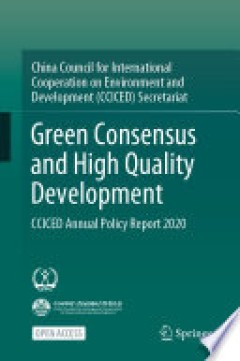
Green consensus and high quality development : cciced annual policy report 2020
This open access book is based on the research outputs of China Council for International Cooperation on Environment and Development (CCICED) in 2020. It covers major topics of Chinese and international attention regarding green development, such as climate, biodiversity, ocean, BRI, urbanization, sustainable production and consumption, technology, finance, value chain, and so on. It also looks…
- Edition
- -
- ISBN/ISSN
- 9789811647994
- Collation
- XXX, 587 p
- Series Title
- -
- Call Number
- 338.951 ZHA g
 Computer Science, Information & General Works
Computer Science, Information & General Works  Philosophy & Psychology
Philosophy & Psychology  Religion
Religion  Social Sciences
Social Sciences  Language
Language  Pure Science
Pure Science  Applied Sciences
Applied Sciences  Art & Recreation
Art & Recreation  Literature
Literature  History & Geography
History & Geography